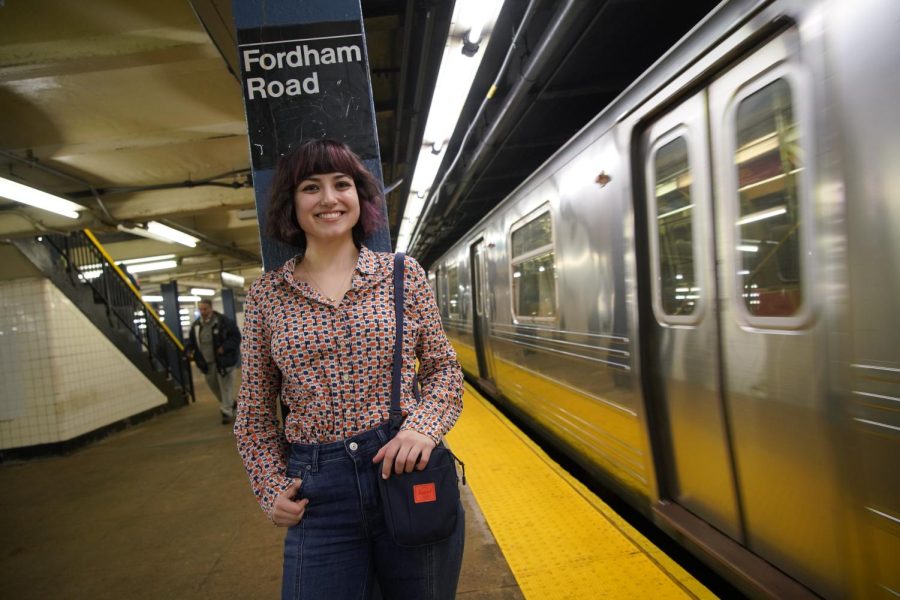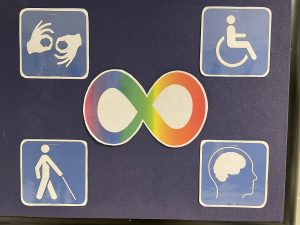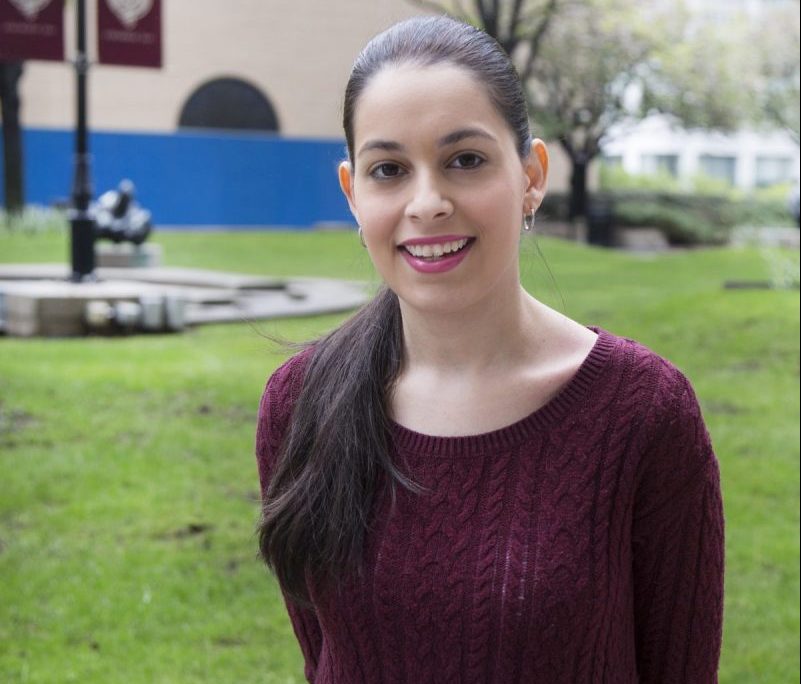Woman of the Hour: Abigail Dziura
Truman scholar recipient proposes policy initiatives for improving accessibility on New York City subways
COURTESY OF ABIGAIL DZIURA
Dziura’s Truman scholarship application focused on increasing accessibility in the New York City subway system.
May 3, 2023
For the first time in almost 10 years, Fordham has fostered a Truman scholar, Abigail Dziura, Fordham College at Rose Hill ’24. The Harry S. Truman Scholarship for Public Service is a highly competitive national scholarship that is awarded to college juniors who have demonstrated a strong commitment to public service and leadership. Dziura was named a finalist for the award in February 2023 and was among 62 students selected from a pool of 700 nominees across the country.
Named in honor of former U.S. President Harry S. Truman, the scholarship provides recipients with up to $30,000 to use for graduate or professional school, as well as opportunities for leadership development and networking. Winners are selected based on their academic achievements, leadership potential and dedication to making a positive impact on their communities and the world. University President Tania Tetlow, J.D. was awarded the Truman scholarship in 1991.
The application process for the scholarship entailed the creation and submission of a policy proposal regarding a public service policy change the applicant is passionate about. Dziura, an American studies major and a student in the Rose Hill honors program, said that her advocacy work intends to highlight the experiences of marginalized people, especially those with disabilities.
“There needs to be a greater awareness and acknowledgement by the Fordham administration about how they can do better with accessibility needs on campus.”Abigail Dziura, FCRH ’24
Dziura specifically chose to focus on improving accessibility in the New York City subway system for visually impaired riders. Her policy proposal focuses on two key solutions: the addition of tactile strips, the raised bumps found on the yellow platform edge in subway stations and high-contrast aesthetics.
In response to receiving the scholarship, Dziura expressed shock and surprise, because of the slew of other deserving candidates she was competing against.
“I was very surprised I won,” she said. “Not because I didn’t believe in myself but because I met so many other incredibly deserving finalists during the process. It almost didn’t feel real.”
To apply for the scholarship, Dziura had to be nominated by the Office of Prestigious Fellowships before completing a pre-application form and developing essay questions that outlined her proposal. Office of Prestigious Fellowships Director Lorna Ronald and Assistant Director Marisa Iglesias also assisted her in refining her application.
Iglesias expressed her excitement for Dziura being named a Truman scholar and commended her for “her dedication to accessibility and for her potential to be a true changemaker.”
In her proposal, Dziura argued that the use of tactile strips results in fewer incidences of riders falling onto platforms, even among riders without visual impairments. By adding tactile strips to platform edges to those without them, Dziura believes that the Metropolitan Transportation Authority can significantly improve rider safety and mobility.
Dziura also advocated for adding high-contrast aesthetics, which refers to visual contrast in stations as opposed to the usual monochrome color palette. She believes that the addition of this step is crucial to accessibility as it helps people navigate through subway stations.
“It’s about approaching accessibility and advocacy with a holistic, comprehensive view and understanding that, while the ADA (Americans with Disabilities Act) is important, it’s the floor, not the ceiling,” she said. “And so even if the ADA doesn’t require these legally, that doesn’t mean we shouldn’t have them.”
This project was sparked partially by her fascination with trains, as well as her passion for advocating for accessibility. She noted that she fell in love with the New York City subway system and when she noticed how inaccessible it was, “something clicked.”
Her policy proposal focuses on two key solutions: the addition of tactile strips, the raised bumps found on the yellow platform edge in subway stations and high-contrast aesthetics.
She first discovered her love for this field in a class she was required to take as part of the core curriculum requirements in the Rose Hill honors program titled “Justice I: The American Experience.” In the class, Dziura had to complete a project on an issue of inequality and propose solutions.
She and two classmates spent seven hours on the subway surveying various stations and critiquing its transit accessibility. They ended up pitching high-contrast aesthetics as their solution in the project, something that Dziura honed in on with her policy proposal.
As for improvements that can be made at Fordham, Dziura hopes that the university can improve accessibility in some buildings as well as mental health practices and procedures throughout the university, in addition to offering more disability studies courses.
“There needs to be a greater awareness and acknowledgement by the Fordham administration about how they can do better with accessibility needs on campus,” Dziura said.
Her disability advocacy transcends beyond the classroom. She has also worked on increasing accessibility as a diversity, equity and inclusion intern at Lincoln Center for the Performing Arts. Dziura also serves as a member of the Access Ambassadors program, an initiative where Lincoln Center for the Performing Arts hires high schoolers with developmental disabilities to work events.
Dziura plans to graduate a semester early in December 2023 and continue working in transit accessibility through the spring. In the summer, Dzuira is anticipating the completion of a paid internship through the Truman scholarship in Washington, D.C.
Following this internship, Dziura either plans to apply to graduate schools or continue working for another year. She is required to attend graduate school as a Truman scholar, and she is currently researching programs in social work and urban planning. She would also like to continue working with transit accessibility groups and hopes to pursue direct advocacy work.












